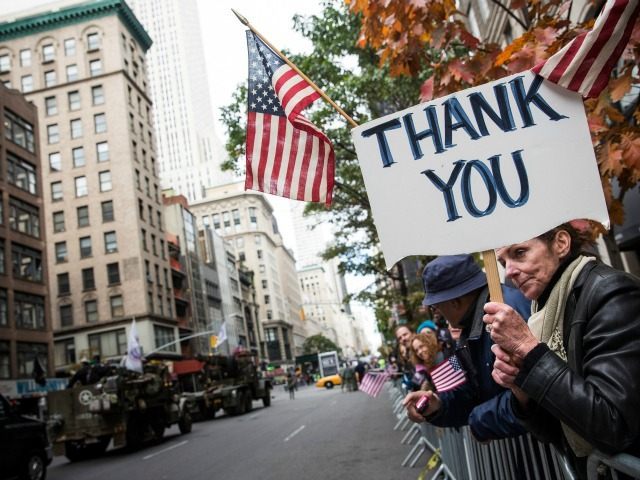It is a long-term and striking characteristic of the American people to show particular devotion to their soldiers and veterans. The famed French observer of American life, Alexis de Tocqueville, understood in the 1830s how the people of a participatory republic like the United States would be both fierce in war and show an uncommon fidelity to those who had served in the military.
Tocqueville described the conditions which would draw Americans into war, certainly applicable to World War I: “When war has at length, by its long continuance, roused the whole community from their peaceful occupations, and ruined their minor undertakings, the same passions which made them attach so much importance to the maintenance of peace will be turned to arms…”
Historian Erick L. McKitrick described Tocqueville’s observation of the kind of patriotism that would become a hallmark of the American republic in relation to an “Austrian peasant of 1914 being conscripted into the imperial army”:
“The powers above” he might have said, “tell me that I must go and do my duty; therefore, of course, I must.” This is the tradition of authority, acceptance, and obedience. The same tradition can also be one of revolution and mutiny: there is something removed from the community scene, yet something focused and personified in the heads of the state, that can specifically be resisted… Yet in our own military tradition, such as it is, there are no such themes, either of implicit acquiescence or revolt. The conviction that our military enterprises are just and righteous does not flow automatically from on high…
Where do the convictions of the righteousness of American soldiers and the justice or their cause emanate from?
“…They emanate, in a special sense, from ourselves. Nobody, for instance, wants very much to be drafted for military service, but the sanctions are hard to ‘mutiny’ against; they come not so much from the President as from a ‘local board composed of your neighbors.’”
In keeping with the American tradition of venerating those who serve, in 1919, President Woodrow Wilson proclaimed November 11 as the first Armistice Day specifically to commemorate those who had fought in the First World War. The date holds special significance because it marked the end of hostilities in the “war to end all wars” on the eleventh hour of the eleventh day of the eleventh month of 1918.
The poor treatment of returning veterans after the Vietnam War was an outlier to this long-term trend and was a product of the culture war that divided Americans at that time and still does today. However, Americans have mostly doubled down in their devotion to returning veterans since that time, as there are now more generations who have returned home from fighting on our behalf.
There is a common perception that America is becoming more self-obsessed and narcissistic, unable to care about or comprehend such notions as duty or devotion to country. While this is often sadly the case, there is another side to this country that hasn’t lost these defining features.
I recently visited the World War II monument in Washington, DC, which is an appropriate and profound tribute to the generation that fought and won the greatest conflict in world history. Though I came to pay my respects, I was enraged at the large number of tourists who treated the memorial as if it were nothing more than a park for personal amusement. Selfie sticks abounded, and a number of people were wading in the central pool that clearly had a sign “Do not put your feet in the water.”
This spectacle left me feeling despondent about the future of the country and ashamed about what past generations would think of the American people in the 21st century. However, my entire perception changed in an instant as a sudden stream of veterans arrived at the monument as part of the Honor Flight program.
Though seeing these distinguished men and women was special, what was perhaps even more important was the sudden and impromptu outpouring of devotion from the ordinary Americans who witnessed their arrival. Gone were the selfie sticks, and in their place appeared handshakes and personal thanks for the veterans’ service.
On this Veterans Day, it should be the duty of every American who still believes in the principles that this country was founded upon—and in the men and women who fought on its behalf—to make some tribute or gesture of thanks. It was established as a custom and a sign of respect to those who have fought for our country to hold a brief moment of silence at 11:00 AM, a tradition that every American should uphold.

COMMENTS
Please let us know if you're having issues with commenting.